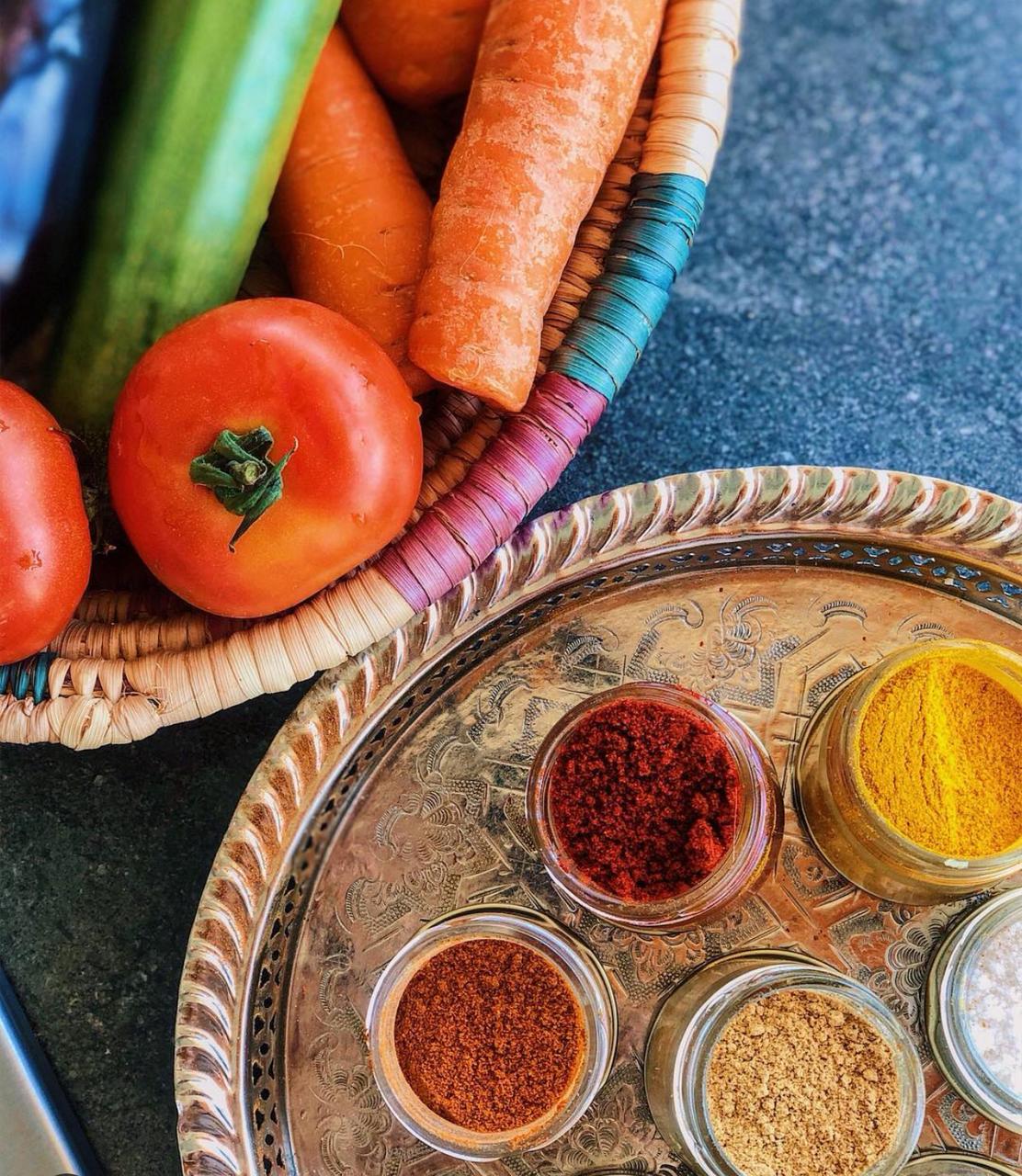The North African Jewish cuisine of Morocco is influenced not only by Jewish traditions but also the Mediterranean and Arabic cultures that surround them. During Spain’s infamous Inquisition, Jews were forced to flee the country for more welcoming shores. Many of these refugees landed in northern Africa, specifically Morocco, and a unique cuisine was born of the marriage of Spanish, Moorish, and traditional Jewish culinary influences, creating one of the most delicious cuisines in the whole world.
Sephardic Jewish Moroccan Food:
Our Meals in Morocco are often centered around vegetables or fish and couscous and spiced with aromatic spices. Moroccan Jewish cuisine makes use of the country’s abundant fruit and vegetables, lamb, almonds, walnuts, olives, and olive and argan oil. It frequently uses spices and condiments such as cinnamon, cumin, Ras el Hanout (a mixture of the best spices), ginger, saffron, paprika, garlic, preserved lemon, and olives.
Our meat dishes are often cooked with fruit. Hence, Moroccan Jews, like their Muslim counterparts, enjoy eating organ meats. Variations of the national dish, couscous, are served with vegetables, onions and meat. Many meals also include cooked salads. Fruit and pastries filled with almond paste complete the meal.
Jewish holidays in Morocco:
Every holiday requires special food. For Rosh Hashanah (the New Year). Meals include apples and honey, seven vegetables and a sheep’s head, pomegranates, and other fruit, as well as green dates. At the end of the Yom Kippur fast. Moroccan Jews eat a special holiday bread made with almonds, a rich meal, and lots of cakes and pastries made from almond paste. For the holiday of Succoth. Moroccan Jews build huts decorated with fruit. Meals include couscous and bean soup. As for Hannukah, the special food is beignets or sfenj (Moroccan doughnuts).
As for the Mimouna. Jewish and Muslim Families gather around a big table celebrating the end of Passover together where the Muslim Families bring the leavened bread marking the end of Passover. The major components of The Mimouna Table are The Leavened Bread, the sweet Moroccan pastries, the Mint leaves (as a symbol of good luck and fortune), and of course the sweet Mint Tea.

A Moroccan Jewish Culinary Experience at The Fez Cooking School:
Enjoy the flavors of North African Jewish cuisine by booking a Sephardic Cooking Workshop, and immerse yourself into a true Moroccan Jewish Experience. Join us and let us introduce you to some of the dishes that rhythm Jewish celebrations throughout the world. We’ll outline your menu together, then we will plunge into the medina’s local souks with our chef & guide to buy our local ingredients. Then come back to the Fez Cooking School for a hands-on experience.

